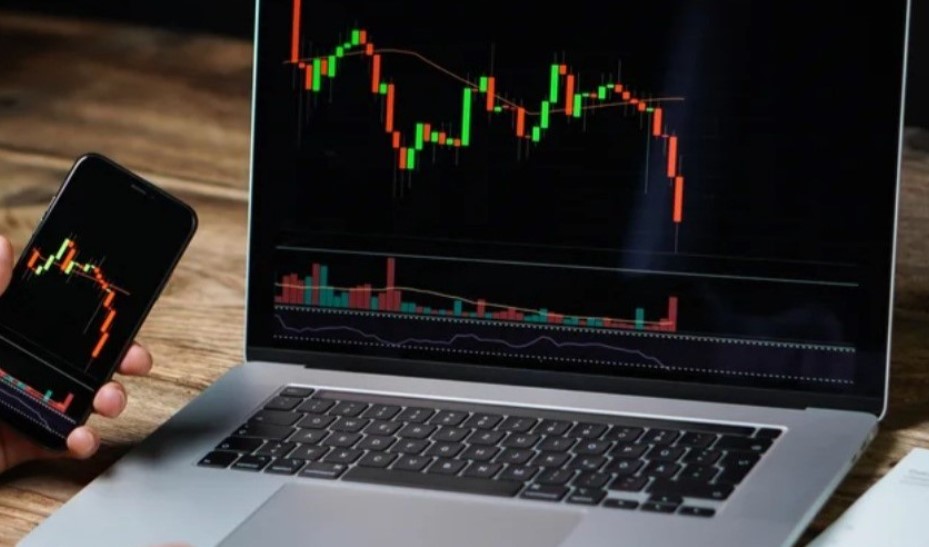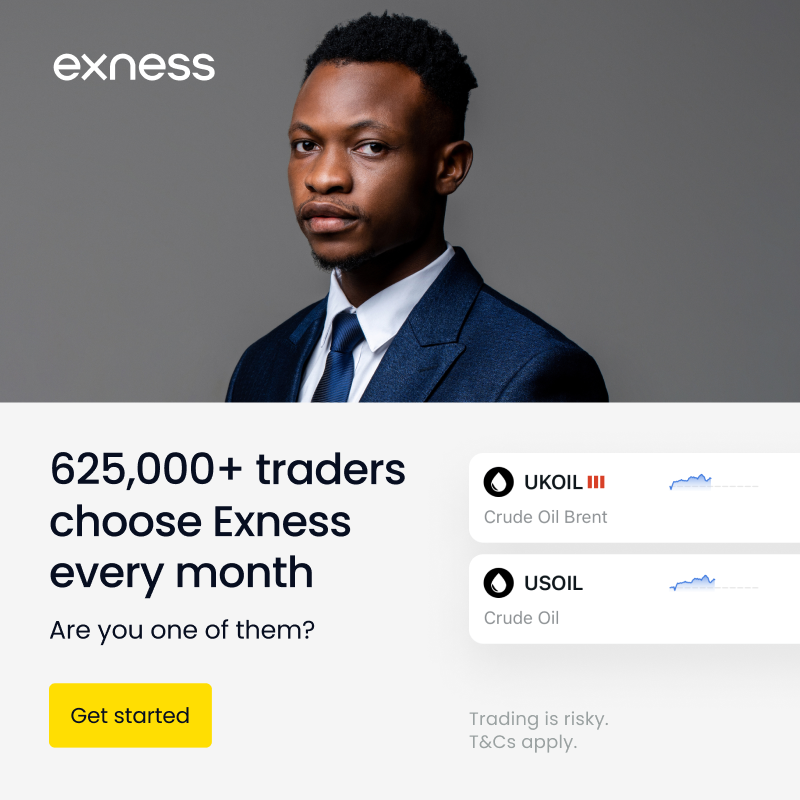
10 minute read
How to Open a Forex Account in Nigeria
from Exness Blog
Introduction
In recent years, the world of foreign exchange (Forex) trading has garnered significant attention from individual investors globally, and Nigeria is no exception. As a result, many Nigerians are eager to tap into the potentially profitable forex market, which boasts daily trading volumes of over $6 trillion. However, starting out in forex trading can be overwhelming for beginners, and one of the first steps is to open a forex account.

💥 Trade with Exness now: Open An Account or Visit Brokers 🏆
In this article, we will guide you through the entire process of opening a forex account in Nigeria, from understanding the regulatory environment, choosing the right forex broker, to funding your account and executing your first trades. By the end of this guide, you'll be equipped with all the necessary knowledge to successfully open a forex account and begin your trading journey in Nigeria.
Understanding Forex Trading in Nigeria
Before delving into the process of opening a forex account, it is essential to understand what forex trading entails and the landscape surrounding it in Nigeria.
What is Forex Trading?
Forex, or foreign exchange, refers to the global marketplace for trading currencies. Unlike other financial markets such as stocks or commodities, the forex market operates 24 hours a day, five days a week, allowing traders to engage in currency transactions at any time.
In forex trading, currencies are traded in pairs. For example, the EUR/USD pair represents the exchange rate between the Euro and the US Dollar. Traders seek to profit by speculating on the price movements of currency pairs. If a trader believes the price of the Euro will rise relative to the US Dollar, they will buy the EUR/USD pair. If their prediction is correct, they can sell the pair at a profit when the price increases.
Forex Trading in Nigeria
Nigeria is one of the largest economies in Africa, and the country has a growing number of retail forex traders. Despite the opportunities it presents, forex trading in Nigeria is highly regulated to ensure a fair and secure market for all participants.
In Nigeria, the Central Bank of Nigeria (CBN) is the regulatory body responsible for overseeing the country’s forex market. The CBN regulates foreign exchange operations to ensure that the value of the Nigerian Naira (NGN) remains stable, and it governs the sale and purchase of foreign currencies within the country.
Forex trading in Nigeria is legal; however, it is crucial for traders to operate within the framework of the law and to choose regulated brokers. In addition to the CBN, the Securities and Exchange Commission (SEC) also regulates certain aspects of the financial market, including forex brokers, to ensure compliance with financial laws.
Legal Considerations for Forex Trading in Nigeria
Forex trading is legal in Nigeria, but it’s subject to certain regulatory conditions. As a Nigerian resident, it's important to be aware of the following legal aspects when engaging in forex trading:
Regulations and Licensing of Forex Brokers in Nigeria
To ensure that traders are protected, the Central Bank of Nigeria (CBN) has set guidelines for the operation of forex brokers in the country. Forex brokers who wish to offer services to Nigerian traders must be licensed by the CBN. However, most forex brokers in Nigeria are licensed in international financial centers such as Cyprus, the United Kingdom, or Mauritius, and operate under those licenses.
It is important to verify that a forex broker is regulated by a reputable authority before signing up. Regulatory bodies like the UK’s Financial Conduct Authority (FCA) or Cyprus Securities and Exchange Commission (CySEC) are internationally recognized and offer a level of protection to traders. Be wary of unregulated brokers as they can pose significant risks, such as poor customer service, delayed withdrawals, and potential fraud.
The Central Bank of Nigeria’s Forex Regulations
The CBN plays an essential role in managing Nigeria’s foreign exchange market, and it has implemented certain restrictions that affect how forex trading can be conducted in the country.
For example, in recent years, the CBN has placed limitations on the purchase of foreign currencies for speculation. Nigerian residents are generally not allowed to trade forex directly with brokers outside of the country unless they are licensed by the CBN or are regulated by another recognized financial authority.
The CBN also monitors remittances and outward forex transactions to maintain the stability of the Naira. It is important for traders to stay updated on the CBN’s regulations to ensure that they remain compliant.
How to Open a Forex Account in Nigeria: Step-by-Step Process
Now that you understand the regulatory environment and the legal landscape of forex trading in Nigeria, let’s explore the step-by-step process of opening a forex account. While this process may vary slightly depending on the broker, the basic steps are largely the same.
Step 1: Choose a Regulated Forex Broker
The first step in opening a forex account is selecting a regulated forex broker. When choosing a broker, you want to ensure that they meet certain criteria to guarantee a safe and secure trading environment.

💥 Trade with Exness now: Open An Account or Visit Brokers 🏆
Things to Consider When Choosing a Forex Broker:
Regulation and Licensing: Always choose a broker that is licensed by reputable financial authorities. Some brokers are licensed by the Central Bank of Nigeria (CBN) while others are licensed by international regulatory bodies such as FCA, CySEC, or ASIC.
Trading Platform: Most brokers offer trading platforms like MetaTrader 4 (MT4) or MetaTrader 5 (MT5). These platforms are user-friendly and come with advanced features such as technical analysis tools, charting, and automated trading options. Ensure the broker you choose provides access to the platform you are most comfortable with.
Spreads and Commissions: A spread is the difference between the buy and sell price of a currency pair. It’s important to compare spreads and commissions across different brokers. Choose a broker with competitive spreads and low transaction costs, as this will directly affect your profitability.
Account Types and Leverage: Most brokers offer different account types such as standard accounts, mini accounts, or VIP accounts. If you’re a beginner, it’s best to start with a standard or demo account to practice without risking real money. Additionally, leverage allows you to control a larger position with a smaller investment. Be sure to understand how leverage works before using it.
Customer Support: Good customer service is vital, especially if you encounter issues or need assistance with your account. Choose a broker with responsive customer support available via multiple channels such as email, phone, or live chat.
Payment Options: Ensure that the broker supports convenient deposit and withdrawal options such as bank transfers, credit/debit cards, or e-wallets like Skrill, PayPal, and Neteller.
Step 2: Open a Trading Account
Once you’ve selected a broker, the next step is to open a trading account. This is a straightforward process that involves the following steps:
Visit the Broker’s Website: Go to the broker’s website and find the option to open a trading account. This is usually located on the homepage.
Fill in Your Personal Details: You’ll be required to provide personal information such as your full name, date of birth, email address, phone number, and residential address.
Choose an Account Type: Select the type of account you want to open. Most brokers offer different account types based on your level of experience and the amount of capital you plan to trade with.
Set Up Login Credentials: You will be asked to create a username and password to access your account. Ensure that these are secure to protect your account.
Complete the KYC (Know Your Customer) Process: Forex brokers are required by law to verify your identity before allowing you to trade. This is done through the Know Your Customer (KYC) process. You’ll need to submit the following documents:
A government-issued ID (e.g., National ID, Passport, or Driver’s License)
Proof of address (e.g., utility bill, bank statement, or rent agreement)
Account Verification: Once you submit your KYC documents, the broker will verify your identity. This process usually takes 24-48 hours, depending on the broker.

💥 Trade with Exness now: Open An Account or Visit Brokers 🏆
Step 3: Deposit Funds into Your Forex Account
After your account is successfully set up and verified, the next step is to deposit funds into your forex account. Brokers typically offer several deposit methods, including:
Bank Transfers: You can deposit funds into your account via local bank transfers. Nigerian banks such as GTBank, Access Bank, and Zenith Bank provide easy and secure transfer options.
Credit/Debit Cards: Some brokers allow you to deposit funds using Visa or MasterCard credit/debit cards. This is a fast and convenient option.
E-Wallets: If you prefer digital wallets, brokers often accept payments via Skrill, PayPal, and Neteller.
Cryptocurrency Payments: A few brokers also accept cryptocurrencies like Bitcoin for deposits.
Make sure you check for any deposit fees and the minimum deposit requirements set by the broker.
Step 4: Download the Trading Platform
Once your account is funded, you can download the broker’s trading platform. The most popular forex trading platforms are:
MetaTrader 4 (MT4)
MetaTrader 5 (MT5)
These platforms are available for Windows, Mac, Android, and iOS devices, allowing you to trade from anywhere at any time.
Step 5: Start Trading
With your account funded and the trading platform installed, you can now begin trading. However, it is advisable to start with a demo account if you are new to forex trading. A demo account allows you to practice trading with virtual money before committing real funds.
As a beginner, focus on understanding how the forex market works, learning technical and fundamental analysis, and developing a risk management strategy.
Tips for Successful Forex Trading in Nigeria
While opening a forex account in Nigeria is the first step, successful trading requires dedication, discipline, and education. Here are some tips for becoming a profitable forex trader:
Start Small and Scale Up: Begin with a small amount of capital and gradually increase your trading size as you gain experience and confidence.
Learn Technical and Fundamental Analysis: Understanding charts, indicators, and market news is crucial for making informed trading decisions.
Use Proper Risk Management: Never risk more than 1-2% of your trading capital on a single trade. Always use stop-loss orders to limit your losses.
Stay Updated with Market News: Economic events and news reports can significantly affect currency prices. Stay informed about global financial developments and their impact on the forex market.
Stay Disciplined: Forex trading requires patience and consistency. Stick to your trading plan and avoid emotional trading.
Conclusion
Opening a forex account in Nigeria is a simple and straightforward process, but it requires careful consideration of the right broker and adherence to the country’s regulatory environment. By following the steps outlined in this guide, you can start trading forex in Nigeria with confidence.
Forex trading offers a wealth of opportunities, but it is important to approach it with a strategic mindset, proper education, and sound risk management practices. Whether you are a beginner or an experienced trader, always remember that the forex market is volatile and requires continuous learning and adaptation.
By choosing a regulated broker, practicing responsible trading, and staying informed about market trends, you can increase your chances of success in the forex market and potentially achieve profitable returns.
Read more:

